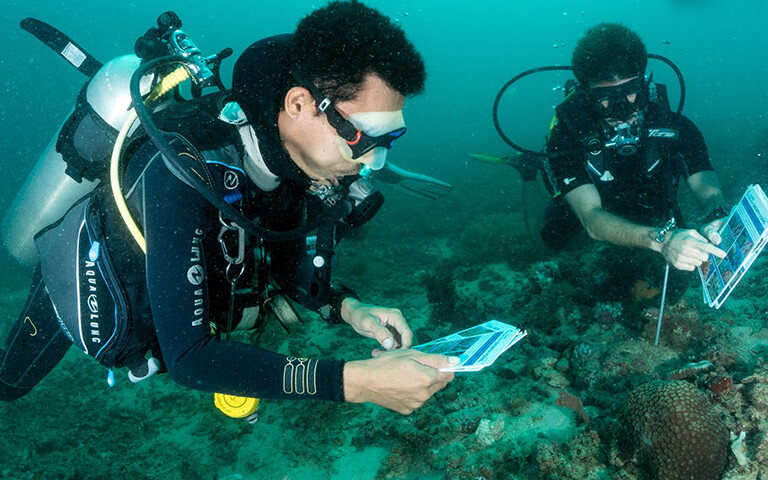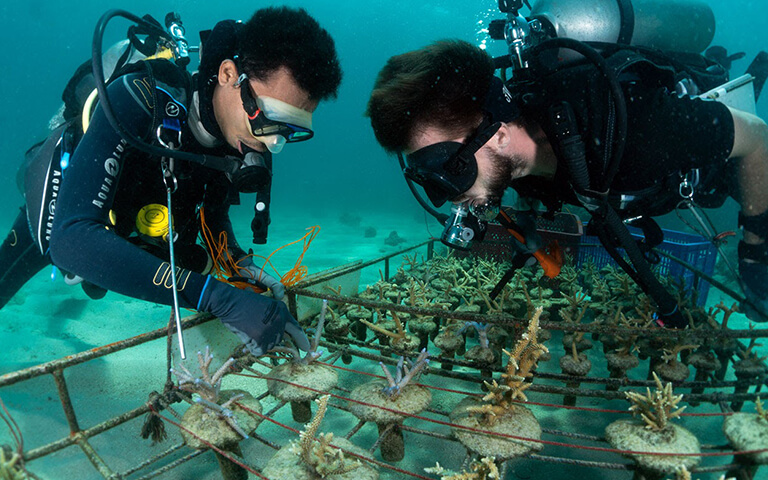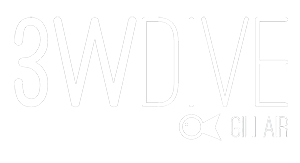by Margot McManus
As part of the Coral Triangle, the Gilis offer diving in crystal clear blue waters. With a rich diversity of coral reefs surrounding the three tiny islands, dive sites are just a short boat ride away with just enough current for smooth and easy drift diving at times. However, it’s impossible to ignore the rapid degradation of our coral reefs.
Whether you’re looking for a marine conservation diving internship or just want to get more involved, there’s a number of ways you can do your part toward coral conservation while diving here on the Gili Islands.
Whether you’re looking for a marine conservation diving internship or just want to get more involved, there’s a number of ways you can do your part toward coral conservation while diving here on the Gili Islands.
Marine biodiversity surrounding the Gilis
Located within the Coral Triangle, where it is estimated that 76% of the world’s coral species are found, the coral reefs surrounding the Gili islands are part of a vital system with the highest coral diversity in the world.
However, with over 5 million tourists visiting Indonesia every year, Indonesia has also become one of the largest plastic polluters in the world. This makes marine conservation in the Gilis and Indonesia an extremely urgent cause.
However, with over 5 million tourists visiting Indonesia every year, Indonesia has also become one of the largest plastic polluters in the world. This makes marine conservation in the Gilis and Indonesia an extremely urgent cause.
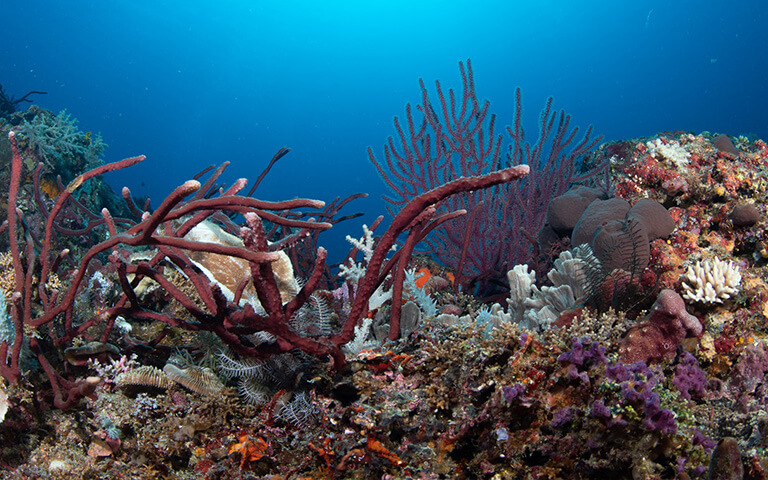
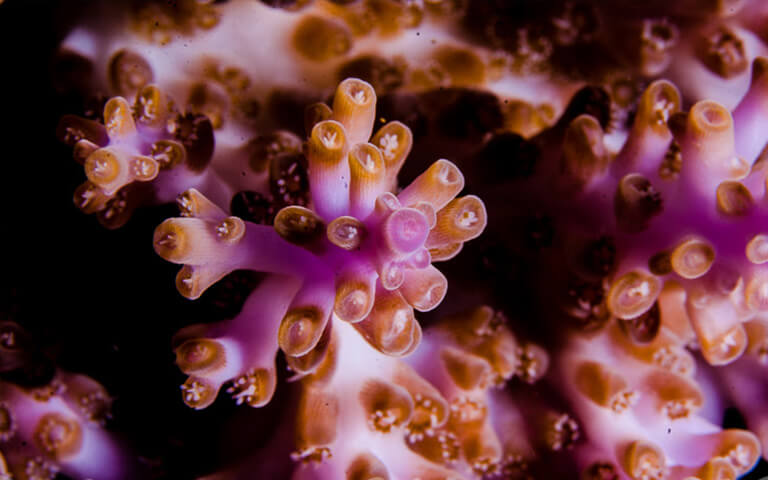
Coral conservation is marine conservation
Many divers don’t understand that corals are more than just underwater plants, but that they are living, breathing and extremely vulnerable animals. The reefs we know and love entirely depend on their survival. As divers, we have a responsibility to be informed on how to ensure their survival and all of the incredible life they support.
Ongoing efforts in the Gilis
At 3W Dive, we understand that it often takes grassroots, community efforts to begin to implement change, which is why we started the Trash Hero Gili Air chapter. Trash Hero is just one great way to not only get involved, but to experience first hand how reducing plastic and plastic pollution has a direct impact on our communities above and below the surface.
While divers are often very knowledgeable around the act of diving itself and even identifying fish, many are unaware of the foundations of a coral reef ecosystem, how to identify coral species, and the potential dangers corals can face from ongoing human contact. We’ll be expanding more on this subject in our next blog post – “5 Ways To Be A More Sustainable Diver” – with more specific info on strategies and habits you can pick up, in and out of the water.
In addition to Trash Hero Gili Air, the island has a number of organizations dedicated to educating and implementing change in the ways we manage our waste and how to be more conscious of our impact as divers and individuals.
In addition to Trash Hero Gili Air, the island has a number of organizations dedicated to educating and implementing change in the ways we manage our waste and how to be more conscious of our impact as divers and individuals.
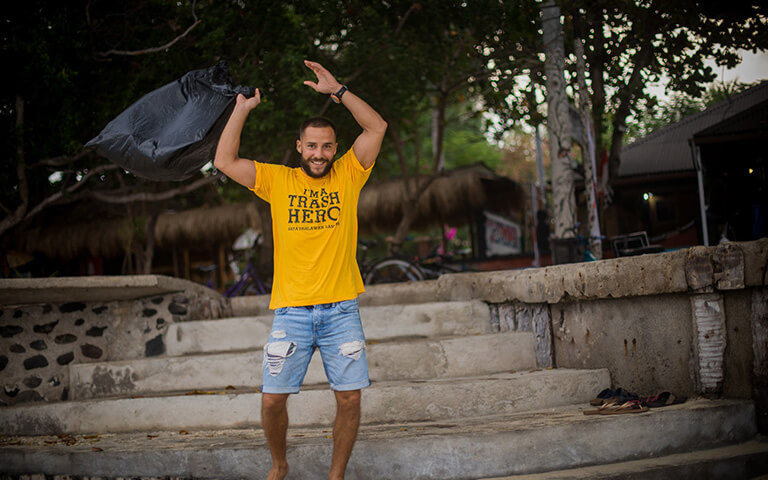
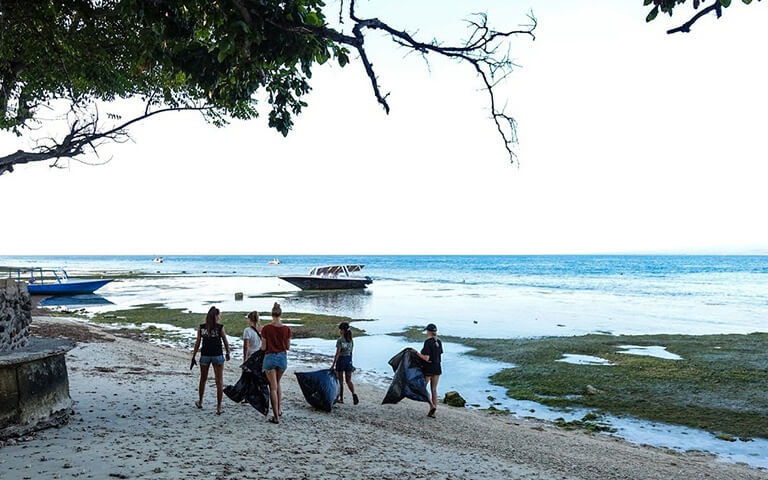
GET INVOLVED
As an island community that is not only passionate about the resilience of our environment but also relies on it, the Gili Air community is consistently making efforts to move toward a more plastic-free way of life, and finding ways to live more sustainably. In addition to our weekly clean-ups and education events with Trash Hero, there are often tree-planting opportunities, sustainability workshops and informational talks happening all around the Gilis.
3W’s marine conservation internship
3W Dive is always looking for more ways to be a conservation focused dive shop, which is why we’ve developed a partnership with an NGO called Coral Indo Conservation and created our marine conservation internship.
As part of our ongoing efforts toward coral conservation within the diving community, we offer a course where divers can learn exactly how to identify different kinds of coral, systems of coral farming, and ways to reduce potential harm that corals face from ongoing human contact.
To learn more about our marine conservation internship, click here.
